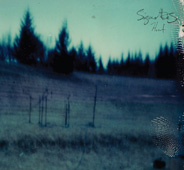“There is nothing new under the sun.” 1
If I chance to leave the confines of my house, or look at the flyers persistently adorning my front door, or happen to peruse Craigslist in pursuit of musical jobs (hint, hint), I am greeted with ubiquitous announcements that there are new churches starting. They convene in warehouses, abandoned storefronts, coffee shops, buildings borrowed from other churches, and virtually any space that can accommodate a stage-and-audience arrangement and be cheaply appropriated. This is wonderful in terms of the Gospel being sown over wider and wider fields. Yet, what Gospel do we sow when our claim is upon something new? To be frank, the Gospel itself is older than time. It is the music and the models and the slapstick efforts at what is often termed “relevancy” that are fancied as new.
There is much danger to be encountered in attending church because of an interesting type of music or a clever way of ordering the service. There is probably even danger – greater danger, if we are honest – in attending church because of an engaging sermon. Is there anything wrong with any of these? Certainly not. They are tools and vehicles. They are supernatural two-way roads that lead us in one direction or the other. The danger is when we, as we are so apt to do, lose the perspective on our wandering hearts. We forget to ask for wisdom and discernment. We forget to ask the Father to “Show [us] if there is any offensive way in [us], and lead [us] in the way everlasting.”
2 Music and sermons and surprises are powerful emotional vehicles that are more tangible, in our fallen state, than is our God. When we do not meditate on the character of God as these things hold sway over us, we are hastily prone to give the praise stored up in our hearts to that which is seen or heard or sensually experienced, as opposed to him whose “worshippers must worship in spirit and in truth.”
3 That is how music becomes “a clanging cymbal.”
4 That is how sermons become “rules taught by men.”
5 We cannot blame the musician or the preacher for what our hearts do with what our ears hear. These men and women are fallen as well, but “the soul who sins is the soul who will die.”
6 “Above all, guard your heart, for it is the wellspring of life.”
7As a sometime worship leader, I am probably more prone than most to give credence to songs instead of to the Creator of music. I must be distrustful of my heart – that lump of flesh within me that beats life into my limbs, that seat of cataclysmic emotion that is “deceitful above all things.”
8 That sounds rather harsh, especially when all the world would tell you to follow your heart. Indeed, “the desires of your heart” are laid there by God himself when you are surrendered to his will.
9 But, here again, we must be clay in his loving hands, thrown again and again upon the hard stone of the potter’s wheel, thinned with water and warmed with chastening friction until we are supple and ready for beauty. Therein, beyond the crumbly iron fringes of our human wills, is a beauty that sits rightfully at the feet of the One who is himself Beauty.
1 Ecclesiastes 1:9
2 Psalm 139:24
3 John 4:24
4 I Corinthians 13:1
5 Isaiah 29:13
6 Ezekiel 18:20
7 Proverbs 4:23
8 Jeremiah 17:9
9 Psalm 37:4










